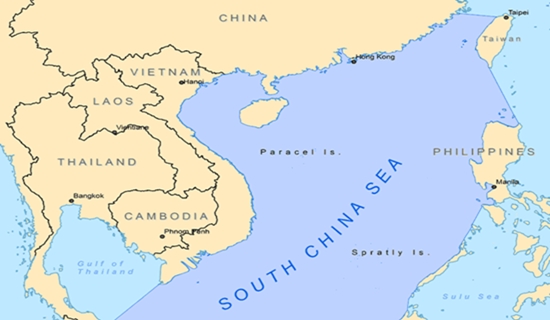
But is it really? Yudhajit Shankar Das is not impressed by Xi Jinping’s celebratory marking of the 70th anniversary of a China–India agreement on Five Principles of Peaceful Coexistence, also called “Panchsheel” or “Panch Shila.”
For Xi to commemorate and praise these Five Principles is mere expediency and hypocrisy, according to the India Today editor.
There’s a reason why China is talking about Panchsheel now, an agreement that it trampled upon with its war against India in 1962.
It is to increase its influence on the global south that China is parroting the Five Principles of Peaceful Existence….
National strategy experts have called out China’s fakery in commemorating the Panchsheel anniversary. They pointed out that the commemoration is ironic because China itself has “flagrantly violated all the Panchsheel principles”.
The first of the Panchsheel principles is mutual respect for each other’s territorial integrity and sovereignty. China has, from the very beginning, blatantly flouted that.
Experts also pointed out how China still continues to violate these principles with its continuing territorial claims and massing of troops along the border.
In its entry on India, Britannica defines the Five Principles as “mutual respect for other nations’ territorial integrity and sovereignty; nonaggression; noninterference in internal affairs; equality and mutual benefit; and peaceful coexistence. These principles were, ironically, articulated in a treaty with China over the Tibet region in 1954, when Nehru still hoped for Sino-Indian ‘brotherhood’ and leadership of a ‘Third World’ of nonviolent nations, recently independent of colonial rule, eager to save the world from Cold War superpower confrontation and nuclear annihilation.”
India isn’t blameless in all this. As Das reports, the 1954 agreement had been “born in sin” according to Indian critics like Acharya Kriplani. For it meant putting “the seal of our approval on the destruction of an ancient nation,” Tibet.
Xi gushes that the Five Principles “have set a historic benchmark for international relations and international rule of law.” Meanwhile, his government routinely violates the sovereignty of countries bordering the South China Sea and elsewhere.
Many countries are getting crowded, not just India. As James Roth points out in an April 2024 column for StopTheChinazis.org:
China asserts territorial claims on at least 15 of its neighbors. That’s not a total of 15 disputed territories, that’s 15 countries various territories of which are claimed by China. The list includes the Philippines, Indonesia, Vietnam, Japan, South Korea, North Korea, Singapore, Brunei, Nepal, Bhutan, Laos, Mongolia, Myanmar.
The situation was made worse late last year by the publication of an official Chinese map reaffirming China’s assumption that it owns almost all of the South China Sea, “an area larger than India, stretching from China’s shores thousands of kilometres to the territorial waters of the Philippines, Malaysia, Indonesia, Brunei, Vietnam and Taiwan.”
The Chinese government doesn’t merely assert these claims verbally or cartographically. It acts on them by, for example, ramming Philippine vessels, building villages in Bhutan, and conducting massive fishing operations within the exclusive economic zones of countries near China and far away from China.











